LiveChat
Step-by-step guide on sending your event data from RudderStack to LiveChat.
LiveChat is a live chat software and customer service platform. It lets you manage user interactions across multiple channels and deliver more effective customer service.
RudderStack supports LiveChat as a destination where you can seamlessly send your event data.
Getting started
Before configuring LiveChat as a destination in RudderStack, verify if the source platform is supported by LiveChat by referring to the table below:
| Connection Mode | Web | Mobile | Server |
|---|---|---|---|
| Device mode | Supported | - | - |
| Cloud mode | - | - | - |
Once you have confirmed that the source platform supports sending events to LiveChat, follow these steps:
- From your RudderStack dashboard, add a source. Then, from the list of destinations, select LiveChat.
- Assign a name to the destination and click Continue.
Connection settings
To successfully configure LiveChat as a destination, you will need to configure the following settings:

- License ID: Enter your LiveChat license ID.
Record Live Chat Events: Enable this setting to allow RudderStack to automatically record your LiveChat interactions as
trackevents.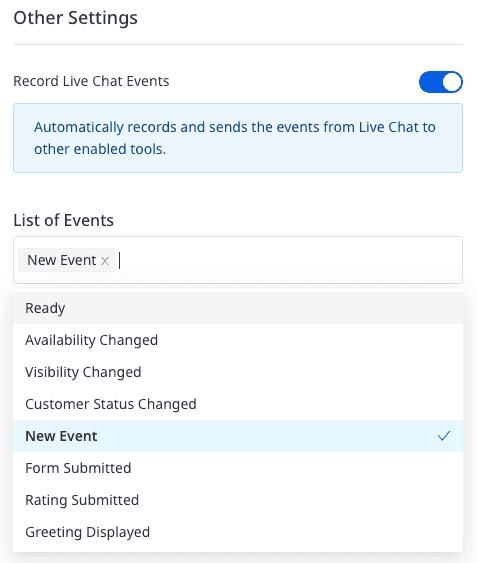
- List of Events: If Record Live Chat Events setting is enabled, enter the list of LiveChat interactions for RudderStack to track.
- Update Event Name in track call: Use this setting to map the standard LiveChat callback events with custom event names.
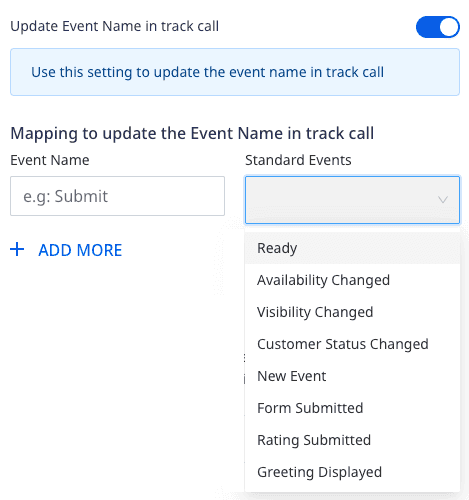 For more information on this setting, refer to the Mapping events section below.
For more information on this setting, refer to the Mapping events section below.Client-side Events Filtering: This setting lets you specify which events should be blocked or allowed to flow through to LiveChat.
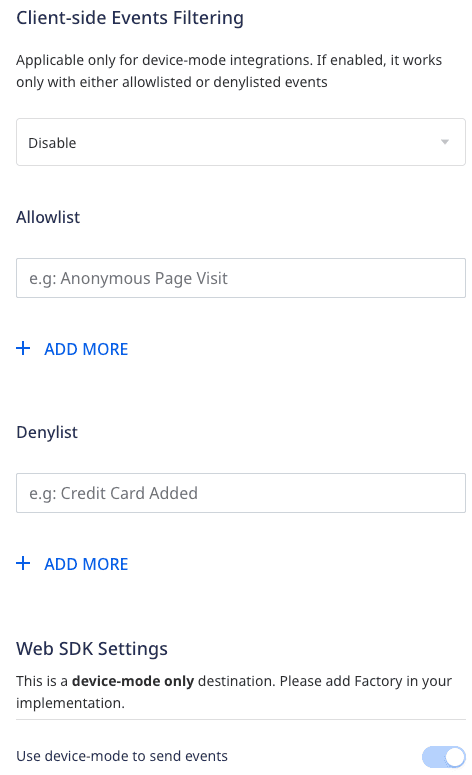
- Use device mode to send events: As this is a web device mode-only destination, this setting is enabled by default and cannot be disabled.
Identify
You can use the identify events to send all the user-related information to LiveChat.
RudderStack sends various optional identify properties by calling the following LiveChat functions:
| RudderStack property | LiveChat function |
|---|---|
context.traits.email | set_customer_email |
message.traits | set_custom_variables |
context.traits.name | set_customer_name |
userId present in the event to set a custom variable called User ID.A sample identify call is shown below:
rudderanalytics.identify("1hKOmRA4GRlm", { name: "Alex Keener", email: "alex@example.com", cart_value: "cart", "order date": "05/21/2019"});Track
If you enable the Record Live Chat Events dashboard setting, RudderStack records the LiveChat interactions and sends them as track events. You can then view and analyze these events in the other tools (connected to the same source in RudderStack).
Supported events
RudderStack automatically records and sends the following LiveChat callbacks:
| LiveChat event | track event name | Description |
|---|---|---|
onReady | Ready | When the chat widget has finished loading. |
onAvailabilityChanged | Availability Changed | When the availability has changed for the current group. |
onVisibilityChanged | Visibility Changed | When the visibility of the chat widget has changed. |
onCustomerStatusChanged | Customer Status Changed | When the customer's status has changed. |
onNewEvent | New Event | Called in case of both the incoming and outgoing events. |
onFormSubmitted | Form Submitted | Called after a form is submitted in the chat. |
onRatingSubmitted | Rating Submitted | When the customer has rated a chat or cancelled the previous rating. |
onGreetingDisplayed | Greeting Displayed | When the greeting is displayed to a customer. |
onGreetingHidden | Greeting Hidden | When the customer cancels the greeting. |
onRichMessageButtonClicked | Rich Message Button Clicked | When the customer clicks the rich message button. |
Mapping events
You can also update the standard LiveChat callback events with custom event names by enabling the Update Event Name in track call setting in the RudderStack dashboard and specifying the required mapping, as shown:
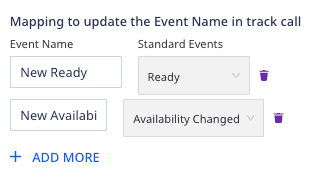
Based on the mappings set in the above image, RudderStack replaces the standard event names Ready and Availability Changed with new ready and new availability changed respectively.
FAQ
Where can I find the LiveChat license ID?
To get your LiveChat license ID, follow these steps:
- Log into your LiveChat dashboard.
- In the bottom left corner, click the Settings icon and go to Website.
- You can find the license ID included in the installation snippet, as shown:
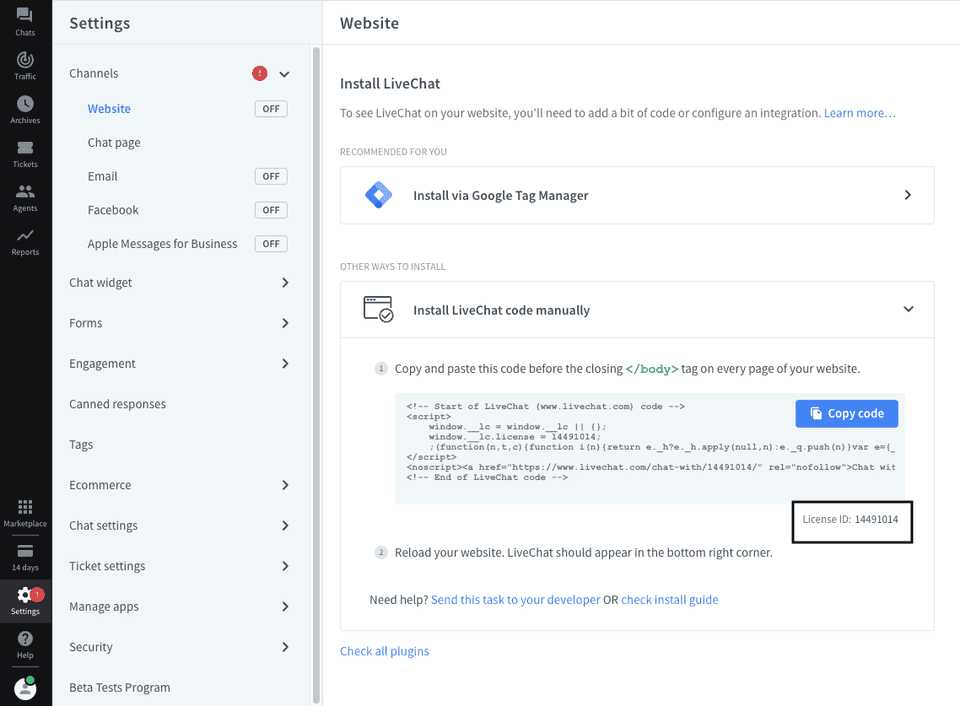
Contact us
For more information on the topics covered on this page, email us or start a conversation in our Slack community.